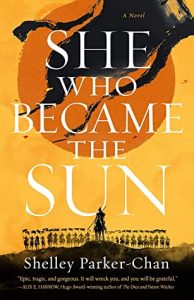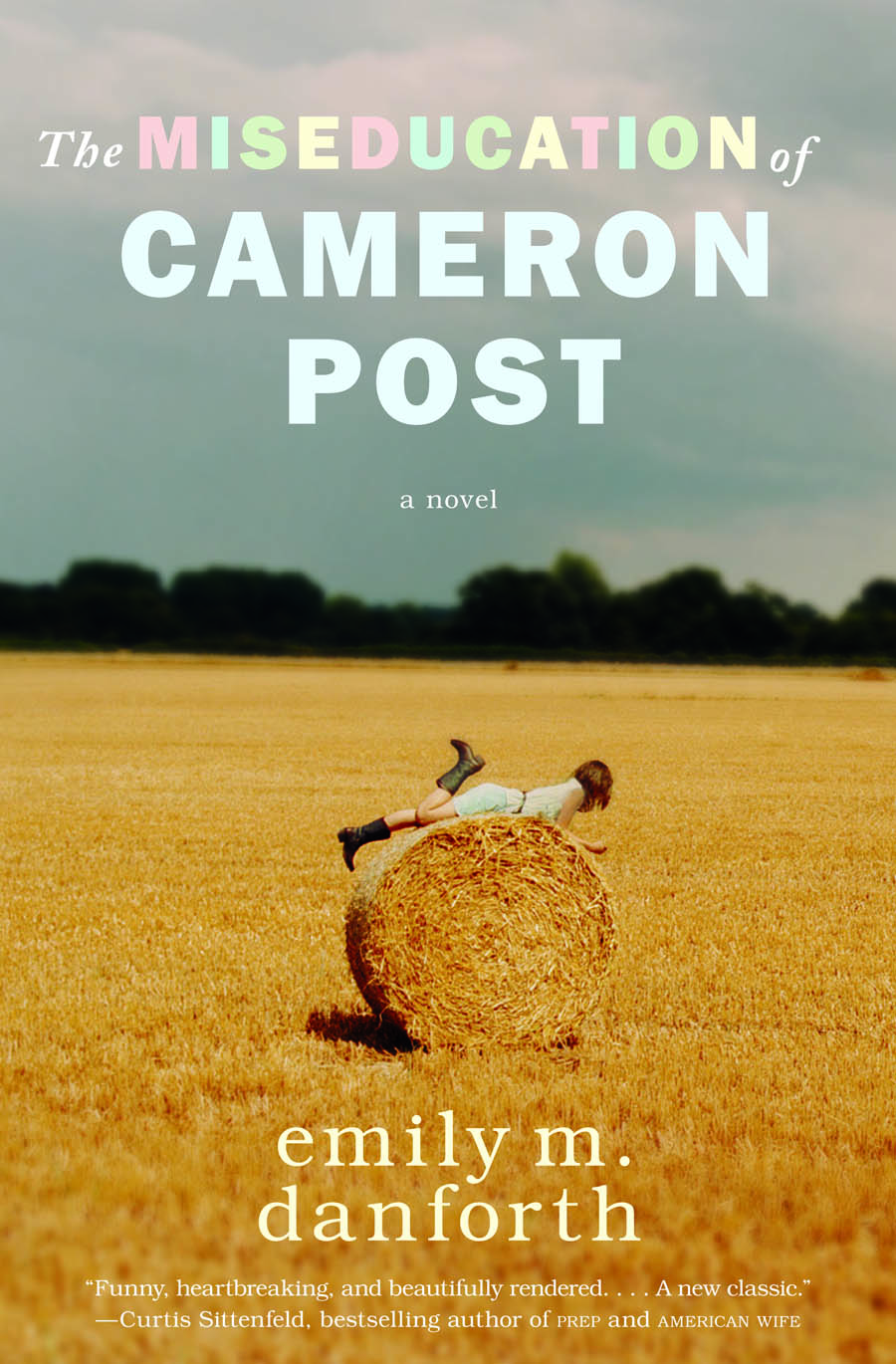Amazon Affiliate Link | Bookshop.org Affiliate Link
In She Who Became the Sun, Zhu, a peasant girl in ancient China, watches as a fortune teller predicts greatness for her brother and nothingness for herself. Days later, she is the only one alive in her family, and she makes the decision to assume her brother’s identity, and thus his destiny. Zhu joins a monastery out of necessity and learns to suppress herself into her brother’s identity so that Heaven doesn’t snatch her brother’s destiny away from her. As Zhu becomes more confident, she realizes that greatness is a destiny that has to be seized and worked for. Afraid that Heaven will throw her back to nothingness if she doesn’t want hard enough, Zhu must adapt to every change in fortune and hold onto her destiny harder than anyone else around her, through politics, war, rebellion, and pain. Shelley Parker-Chan’s debut novel is a gripping adventure with a lot to say about destiny, fortunes, and gender identity that I found to be a great read.
“Female character must assume a male identity to have an adventure/do what they want” is not an unusual fantasy trope (the book description mentions Mulan, but honestly Tamora Pierce’s Alanna quartet also sprang to mind several times), but Parker-Chan takes this concept somewhat farther. Zhu is not just worried about those around her finding out that she’s not a man, she is terrified that Heaven will realize she’s not Zhu Chongba and cast her back into nothingness, and so she must totally become Zhu Chongba, and do nothing that Zhu Chongba wouldn’t do. Later, Zhu realizes that the destined greatness she senses is uniquely hers and not her brother’s, but by that point she no longer feels like a girl as she was, but nor does she feel like a man. Terms such as gender-fluid, genderqueer or nonbinary aren’t really in Zhu’s vocabulary, or the vocabulary of anyone else around her for that matter, which really leaves a lot of scope for a queer reader to project their own experiences on the character, and makes Zhu unique and interesting in the annals of disguised fantasy heroes. It also speaks to identity as a journey that can change over time. I really enjoyed Zhu’s evolving identity, and how Zhu interacted with those around her, and I felt like this book had a lot of really interesting viewpoints and nuance.
Zhu also experiences many instances where she feels an intense connection with other people. At first this makes her intensely uncomfortable – such as when she feels a connection to the Governor of Lu’s widow. Zhu promises her power if she will help Zhu in return, and the Lady accepts. Zhu feels a connection to a woman who knows they are competent and wants power, but she’s still in a place that to feel connection feels too risky, like it will call Heaven’s attention to the fact that she’s not Zhu Chongba. Her other instances of connection are rather more queer. She feels an instant connection with General Ouyang, a eunuch serving the Emperor, the instant she lays eyes on him when he’s at the Monastery, and that connection continues on as they become rival commanders. This connection makes Zhu uncomfortable both because they are on opposing sides and because Ouyang’s otherness is blatant and acknowledged. She feels if she becomes too associated with him, or if he is around her too much, her own otherness will become too apparent. There is also Ma Xiuying, a noble girl nominally engaged to one of the rebellion’s leaders. Zhu cannot understand why Ma Xiuying won’t take what she wants for herself, and why she lets others bully her. Unlike her connection of otherness with others, Zhu is drawn even closer to Ma Xiuying, and their relationship blooms into something both delightful and queer. Zhu’s connections with others serve only to highlight her otherness and queerness, and how she reacts to them changes over time as her comfort in herself changes over time. I really enjoyed these scenes of Zhu realizing a connection, they felt real and like a great foil for Zhu’s own character development.
She Who Became the Sun is a stunning queer fantasy debut full of wide, sweeping action, and intimate character development. Zhu is a nuanced, layered character, whose evolving gender presentation and identity are great to see in a mainstream release. I had a great time reading this book, and I heartily recommend it for the epic fantasy crowd. I’m looking forward to the sequel!




